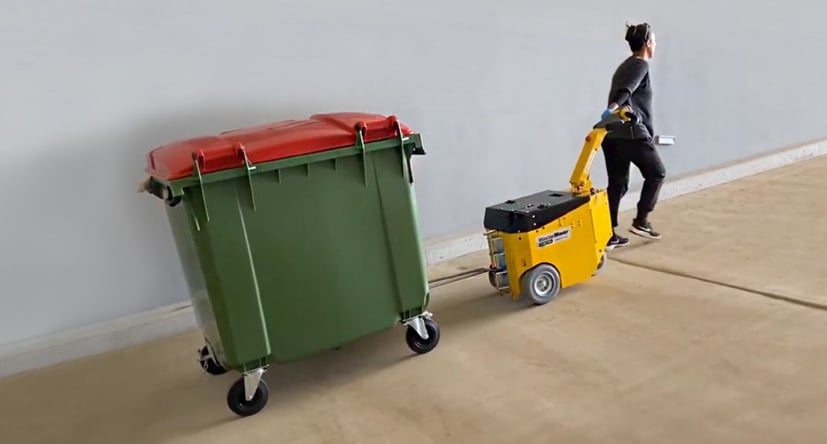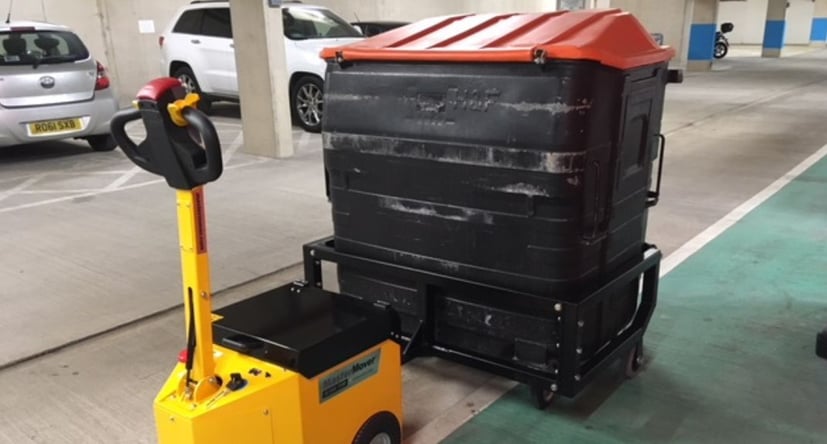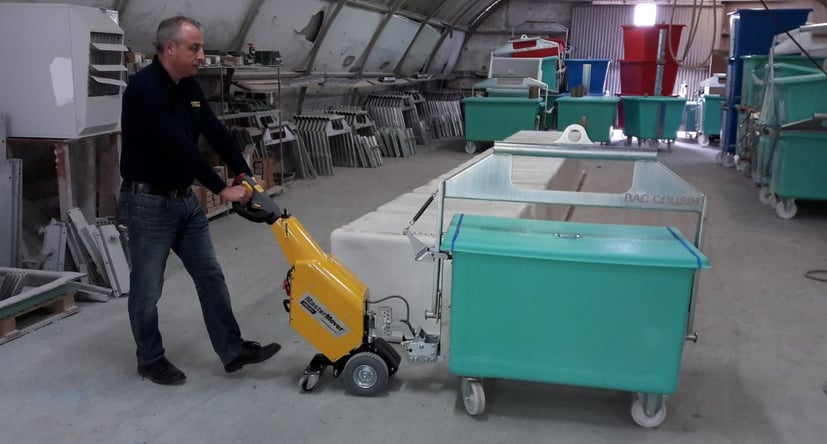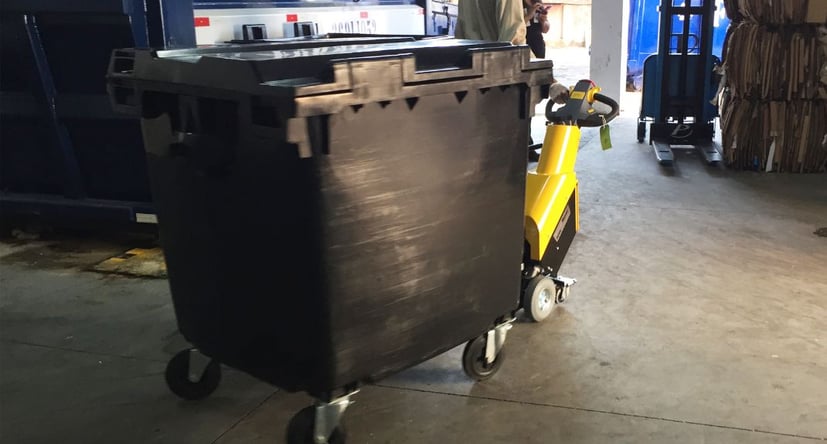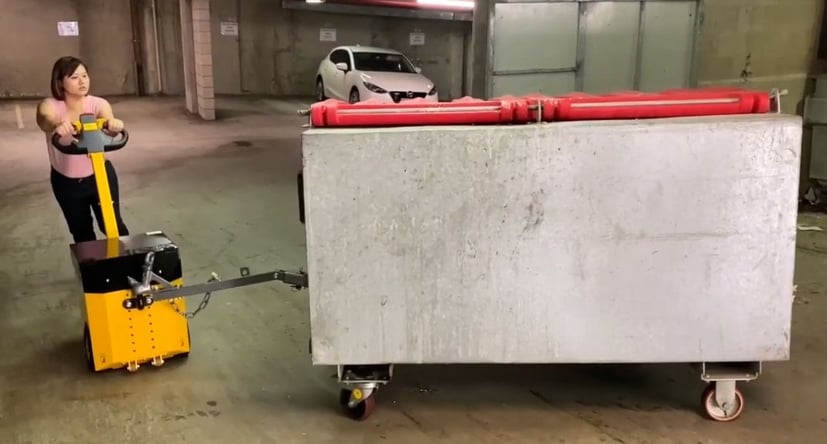Manual handling solutions for Waste Management
Waste Management
Eliminating manual handling and creating safer waste handling processes. Improve workplace safety and boost staff productivity with electric tugs.
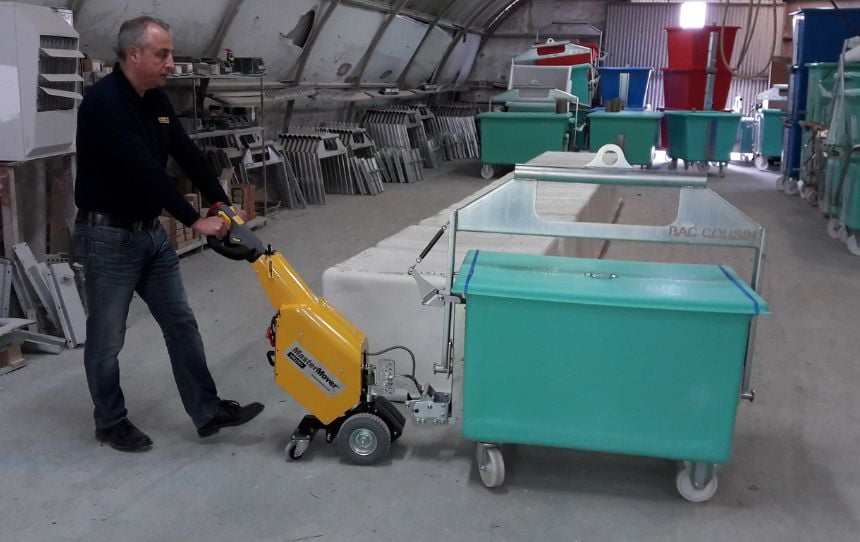
Manual handling – the issue of waste management safety
Within the waste management sector, loaded commercial waste bins are often moved by hand, putting staff at risk of injury, strains and musculoskeletal disorders – particularly where loads need to be moved on slopes.
Businesses focused on waste management safety are increasingly looking for better ways of transporting waste that drives safety and operational efficiency.
- Chapters
- descriptions off, selected
- subtitles settings, opens subtitles settings dialog
- subtitles off, selected
This is a modal window.
Beginning of dialog window. Escape will cancel and close the window.
End of dialog window.
Improve staff safety and boost productivity
Enabling a single operator to safely move heavy loads such as commercial and residential waste, electric tugs help waste management providers to improve workplace safety and eliminate manual handling.
Offering a safer alternative to manual handling, electric tugs deliver the controlled movement of loads inside, outside and on slopes - reducing the risk of injury and boosting productivity.
The benefits of electric tugs in waste management
Compact, easy-to-use electric tugs enable a single operator to safely move loads, ideal for use in commercial and residential waste management. Benefit from maximum control and reduce the risk of injury with secure waste handling solutions, perfect for working on slopes.
-
Eliminate manual handling
Make the movement of heavy waste safer – electric tugs reduce the risk of injuries and boost productivity.
-
Total control on slopes
Electric tugs deliver the effortless movement of loads, even on slopes. Need to move heavy bins up an incline? No problem!
-
Reduce staff absence
Reducing the risk of injury, electric tugs help waste management providers reduce staff absences from aches, strains and musculoskeletal disorders.
Our range of waste management electric tugs
SmartMover
Up to 2,000 kg
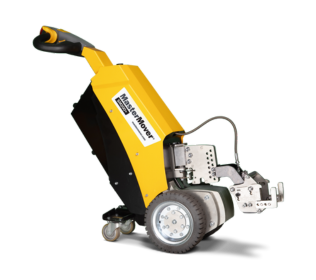
Compact but powerful, the SmartMover is the ideal manual handling solution – trusted to improve safety across industrial manufacturing, retail and ...
MasterTug
Up to 20,000 kg
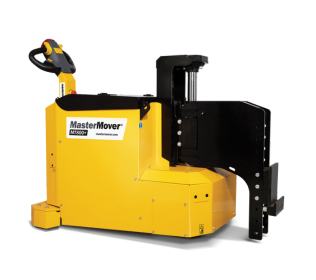
The MasterTug range allows a single pedestrian operator to easily push, pull and steer wheeled loads weighing up to 20,000kg.
MasterTow
Up to 20,000 kg
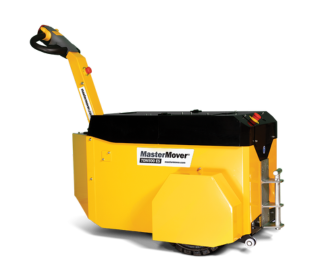
Drive safety and efficiency with our powerful electric tow tugs, designed to safely move loads of up to 20,000kg.
Trusted by leading waste management providers
Leading waste management providers trust MasterMover’s compact electric tugs to safely move loads, boosting productivity and improving workplace safety.





Our staff have given us some great feedback and love the MasterMover’s simplicity of use and safety features. Now, one person can easily move the bins without strain or effort.
Kate BrittonProperty Manager, Alexander Faulkner Partnership
Your Questions, Answered - FAQs
- Waste bins
- Residential bins
- Clinical waste
- Commercial waste bins
Across the waste management sector, electric tugs are used to eliminate manual handling and improve workplace safety in the movement of loads such as:
No, electric tugs do not require a license to operate. A license-free operation makes electric tugs an attractive option for waste management providers looking to streamline the movement of loads and improve safety.
Minimal training is required to safely operate an electric tug and we offer training packages to suit every requirement.
Electric tugs are battery powered, with interchangeable batteries or lithium options available, electric tugs can deliver 24/7 operation to keep your processes moving.
Offering zero emissions from the point of use, electric tugs are ideally suited for indoor use.
A range of coupling options are available across the range that maximise performance, security and safety.
Custom coupling solutions can also be designed for unique applications.
Yes, our electric tugs can be used to move multiple loads at once – reducing the number of journeys required. This is an attractive option for waste managers looking to move multiple bins from one area to another.
Our team can advise on how best to link multiple loads together.
We're here to help
If you’re looking to improve safety, remove the risk of injury and unlock greater operational efficiency, we’re here to help. Speak to our team to discuss your application.
